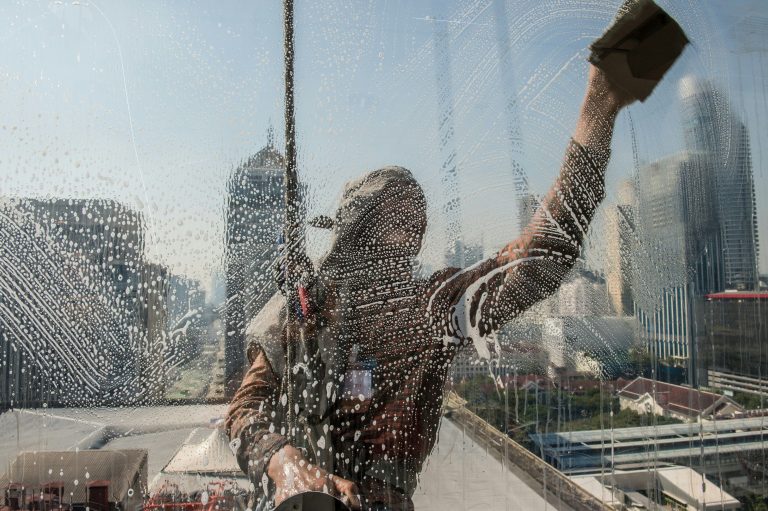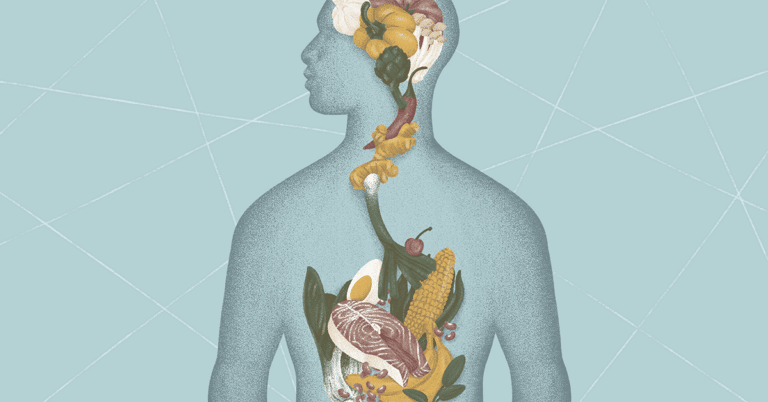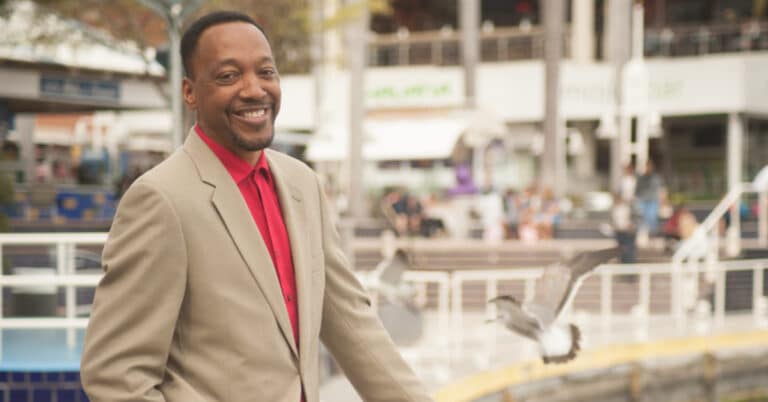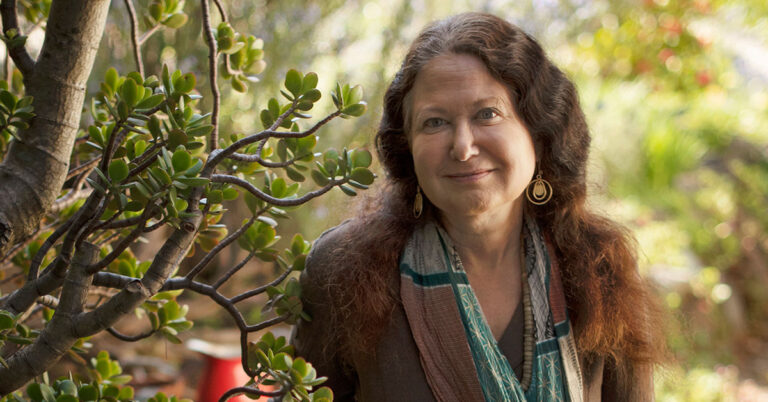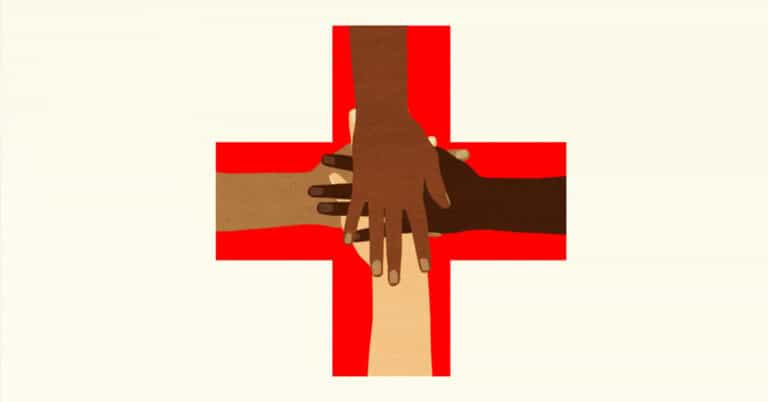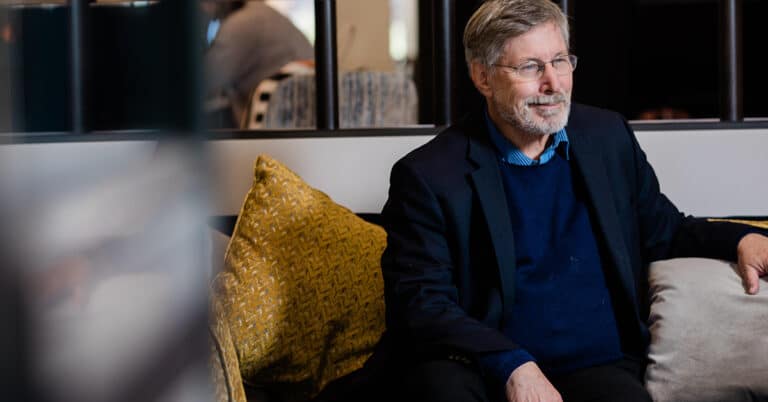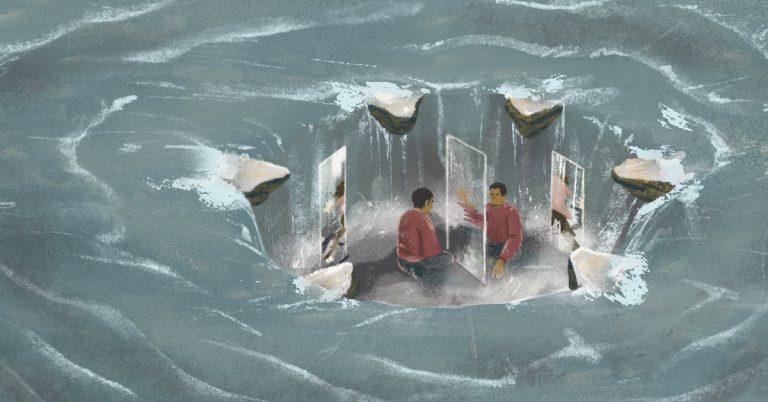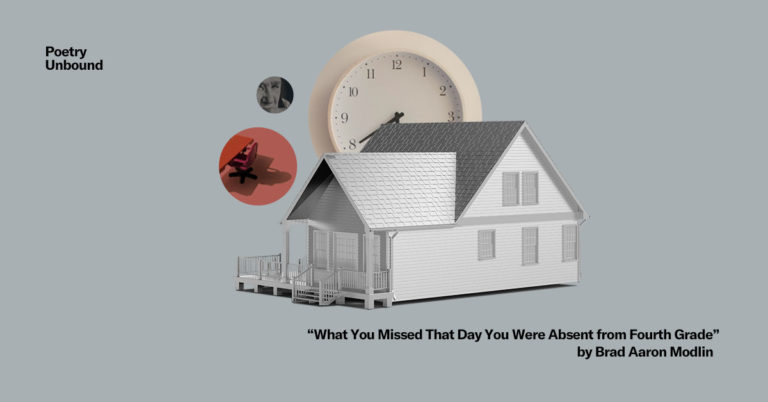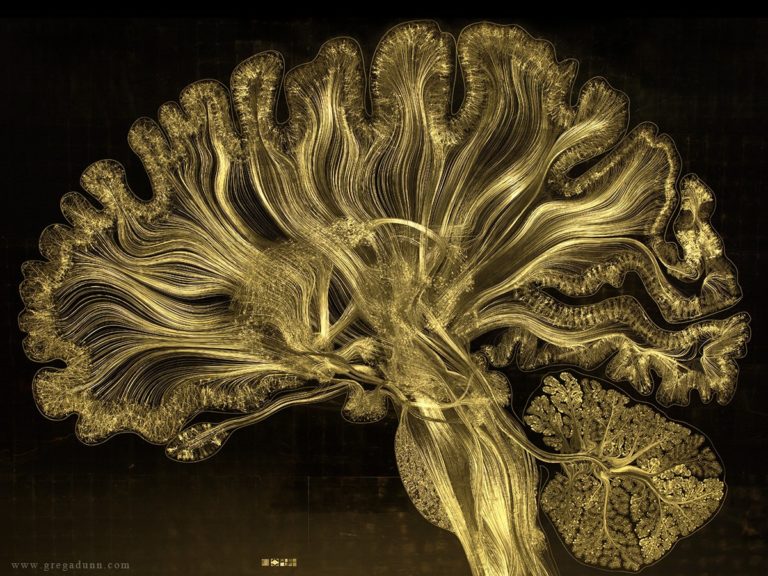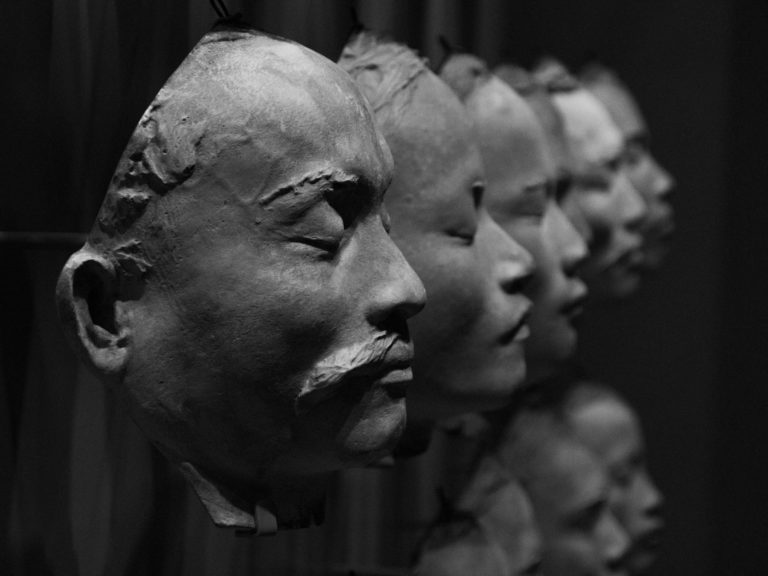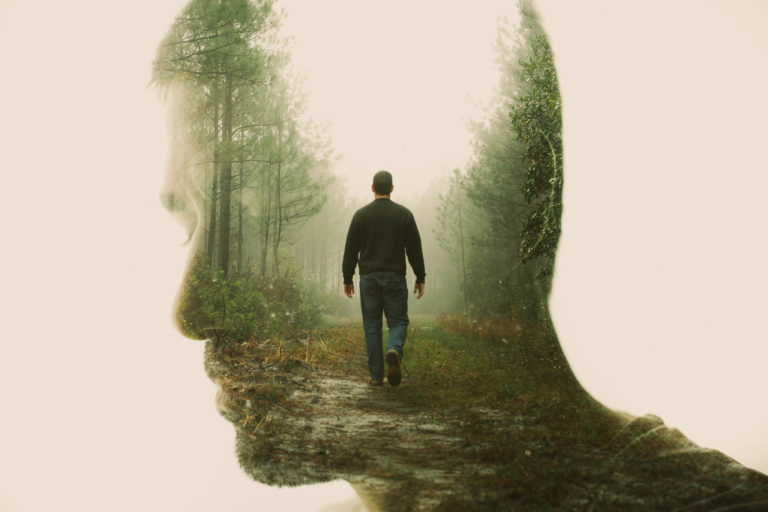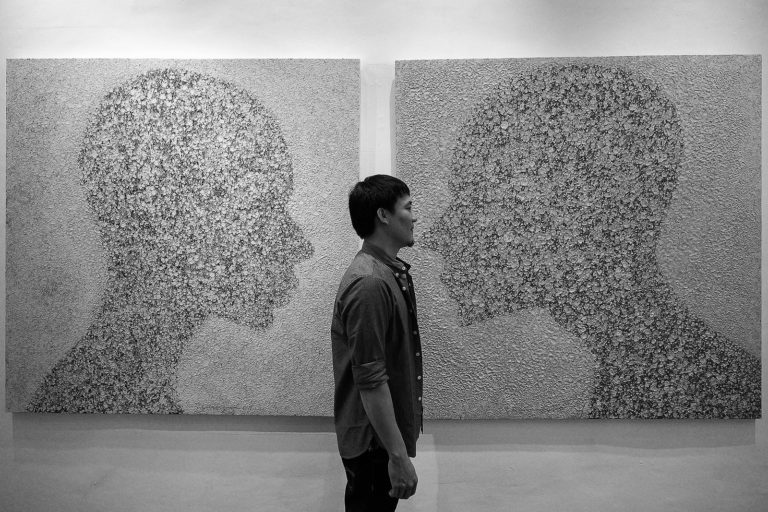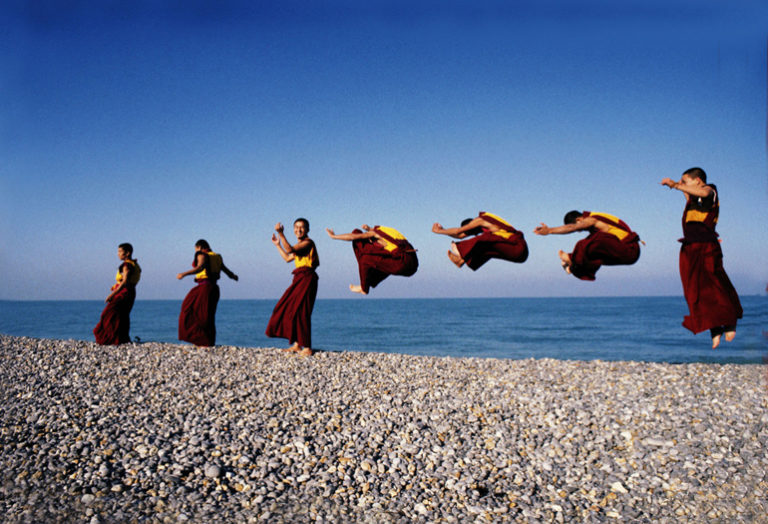We are at a point where our conscious minds are so ahead of our less conscious minds. We must recognize that, and yet, ask people the question, ‘Are you the good person you yourself want to be?’ And the answer to that is no, you’re not. And that’s just a fact. And we need to deal with that if we want to be on the path of self-improvement.
Brain & Neuroscience
Featured Items
Her unconventional studies have long suggested what neuroscience is now revealing: Our experiences are formed by the words and ideas we attach to them. Naming something play rather than work — or exercise rather than labor — can mean the difference between delight and drudgery, fatigue or weight loss. What makes a vacation a vacation is not only a change of scenery, but the fact that we let go of the mindless everyday illusion that we are in control. Ellen Langer says mindfulness is achievable without meditation or yoga. She defines it as “the simple act of actively noticing things.”
View
- List View
- Standard View
- Grid View
26 Results
Filters
The British psychologist Kimberley Wilson works in the emergent field of whole body mental health, one of the most astonishing frontiers we are on as a species. Discoveries about the gut microbiome, for example, and the gut-brain axis; the fascinating vagus nerve and the power of the neurotransmitters we hear about in piecemeal ways in discussions around mental health. The phrase “mental health” itself makes less and less sense in light of the wild interactivity we can now see between what we’ve falsely compartmentalized as physical, emotional, mental, even spiritual. And so much of what we’re seeing brings us back to intelligence that has always been in the very words we use — “gut instinct,” for instance. It brings us back to something your grandmother was right about, for reasons she would never have imagined: you are what you eat. There is so much actionable knowledge in the tour of the ecosystem of our bodies that Kimberley Wilson takes us on this hour. This is science that invites us to nourish the brains we need, young and old, to live in this world.
February 3, 2022
Trabian Shorters
A Cognitive Skill to Magnify Humanity
Trabian Shorters is a visionary who has seen and named a task that is necessary for all healing and building, for every vision and plan, whether in a family or a world, to flourish. It’s called Asset Framing — and it works with both new understandings of the brain and an age-old understanding of the real-world power of the words we use, the stories we tell, and the way we name things and people. From everyday social media, to hallowed modes of journalistic, academic, and policy analyses, we have a habit of seeing deficits — and of defining people in need in terms of their problems. This has not only doomed some of our best efforts to failure — it leaves all of us prone to cynicism and hopelessness. What’s exciting is that what Trabian Shorters proposes is not only more effective, it is simple and straightforward to grasp. It is in and of itself dignifying and renewing. The main question you might be asking at the end of this is why, at this advanced stage of our species, it took us so long to learn to asset frame.
The esteemed writer Jane Hirshfield has been a Zen monk and a visiting artist among neuroscientists. She has said this: “It’s my nature to question, to look at the opposite side. I believe that the best writing also does this … It tells us that where there is sorrow, there will be joy; where there is joy, there will be sorrow … The acknowledgement of the fully complex scope of being is why good art thrills … Acknowledging the fullness of things,” she insists, “is our human task.” And that’s the ground Krista meanders with Jane Hirshfield in this conversation: the fullness of things — through the interplay of Zen and science, poetry and ecology — in her life and writing.
December 2, 2021
Vivek Murthy and Richard Davidson
The Future of Well-being
What if the future of well-being is about “tipping the scales in the world away from fear and toward love”? And what if it’s a surgeon general of the United States, Dr. Vivek Murthy, who talks this way? Krista draws him out with his friend, the groundbreaking neuroscientist Richard Davidson. Together they carry deep intelligence and vision from the realms of science and public health, expansively understood. They explore all we are learning to help move us forward as a species. This conversation was held as a live Zoom event, sponsored by the Center for Healthy Minds.
November 11, 2021
Bessel van der Kolk
How Trauma Lodges in the Body, Revisited
When Krista interviewed the psychiatrist and trauma specialist Bessel van der Kolk for the first time, his book The Body Keeps the Score was about to be published. She described him then as “an innovator in treating the effects of overwhelming experiences on people and society.” She catches up with him in 2021 — as we are living through one vast overwhelming experience after the other. And The Body Keeps the Score is now one of the most widely read books in the pandemic world. His perspective is utterly unique and very practically helpful — on what’s been happening in our bodies and our brains, and how that relationship can become severed and restored.
The classic economic theory embedded in western democracies holds an assumption that human beings will almost always behave rationally in the end and make logical choices that will keep our society balanced on the whole. Daniel Kahneman is the psychologist who won the Nobel Prize in Economics for showing that this is simply not true. There’s something sobering — but also helpfully grounding — in speaking with this brilliant and humane scholar who explains why none of us is an equation that computes. As surely as we breathe, we will contradict ourselves and confound each other.
Brad Aaron Modlin’s poem “What You Missed That Day You Were Absent from Fourth Grade” speaks of learning to grow up by yourself. The poet wonders what life lessons would look like if they could be taught by a teacher; a good teacher, a teacher like Mrs. Nelson.
A question to reflect on after you listen: What life lessons did you have to learn by yourself?
Science writer and reporter Erik Vance says today’s brain scientists are like astronomers of old: They’ve unsettled humanity’s sense of itself by redrawing our picture of the cosmos within our own heads. Vance has investigated the healing power of stories and the “theater of medicine” (white coats included). It turns out that the things that make us feel better are often more closely connected to what we believe and fear than to the efficacy of some treatments. In fact, most drugs that go to trial can’t beat what we’ve dismissively called the “placebo effect,” which is actually nothing less than an unleashing of the brain’s superpowers.
February 14, 2019
Richard Davidson
A Neuroscientist on Love and Learning
Neuroscientist Richard Davidson is one of the central people who’s helped us begin to see inside our brains. His work has illuminated the rich interplay between things we saw as separate not that long ago: body, mind, spirit, emotion, behavior, and genetics. Richard is applying what he’s learning about imparting qualities of character — like kindness and practical love — in lives and in classrooms. This live conversation was recorded at the Orange County Department of Education in Costa Mesa, California.
Brain surgeon James Doty is on the cutting edge of our knowledge of the brain and the heart: how they talk to each other; what compassion means in the body and in action; and how we can reshape our lives and perhaps our species through the scientific and human understanding we are now gaining.
August 23, 2018
Mahzarin Banaji
The Mind Is a Difference-Seeking Machine
The emerging science of implicit bias is one of the most promising fields for animating the human change that makes social change possible. The social psychologist Mahzarin Banaji is one of its primary architects. She understands the mind as a “difference-seeking machine” that helps us order and navigate the overwhelming complexity of reality. But this gift also creates blind spots and biases, as we fill in what we don’t know with the limits of what we do know. This is science that takes our grappling with difference out of the realm of guilt, and into the realm of transformative good.
Anthropologist Helen Fisher explores the biological workings of our intimate passions, the brew of chemicals, hormones, and neurotransmitters that make the thrilling and sometimes treacherous realms of love and sex. In the research she does for match.com and her TED Talks that have been viewed by millions of people, she wields science as an entertaining, if sobering, lens on what feel like the most meaningful encounters of our lives. In this deeply personal conversation, she shows how it is possible to take on this knowledge as a form of wisdom and power.
November 9, 2017
Rachel Yehuda
How Trauma and Resilience Cross Generations
The new field of epigenetics sees that genes can be turned on and off and expressed differently through changes in environment and behavior. Rachel Yehuda is a pioneer in understanding how the effects of stress and trauma can transmit biologically, beyond cataclysmic events, to the next generation. She has studied the children of Holocaust survivors and of pregnant women who survived the 9/11 attacks. But her science is a form of power for flourishing beyond the traumas large and small that mark each of our lives and those of our families and communities.
Her unconventional studies have long suggested what neuroscience is now revealing: Our experiences are formed by the words and ideas we attach to them. Naming something play rather than work — or exercise rather than labor — can mean the difference between delight and drudgery, fatigue or weight loss. What makes a vacation a vacation is not only a change of scenery, but the fact that we let go of the mindless everyday illusion that we are in control. Ellen Langer says mindfulness is achievable without meditation or yoga. She defines it as “the simple act of actively noticing things.”
“When it comes to moral judgments, we think we are scientists discovering the truth, but actually we are lawyers arguing for positions we arrived at by other means.” The surprising psychology behind morality is at the heart of social psychologist Jonathan Haidt’s research. He explains “liberal” and “conservative” not narrowly or necessarily as political affiliations, but as personality types — ways of moving through the world. His self-described “conservative-hating, religion-hating, secular liberal instincts” have been challenged by his own studies.
A French-born Tibetan Buddhist monk and a central figure in the Dalai Lama’s dialogue with scientists, Matthieu Ricard was dubbed “The Happiest Man in the World” after his brain was imaged. But he resists this label. In his writing and in his life, he explores happiness not as pleasurable feeling but as a way of being that gives you the resources to deal with the ups and downs of life and that encompasses many emotional states, including sadness. We take in Matthieu Ricard’s practical teachings for cultivating inner strength, joy, and direction.
Jean Berko Gleason is a living legend in the field of psycholinguistics — how language emerges, and what it tells us about how we think and who we are. She has helped to illustrate the remarkable ordinary human capacity to begin to speak, and she’s continued to break new ground in exploring what this may teach us about adults as about the children we’re raising. We keep learning about the human gift, as she puts it, to be conscious of ourselves and to comment on that. For her, the exploration of language is a frontier every bit as important and thrilling as exploring outer space or the deep sea.
Few features of humanity are more fascinating than creativity; and few fields are more dynamic now than neuroscience. Rex Jung is a neuropsychologist who puts the two together. He’s working on a cutting edge of science, exploring the differences and interplay between intelligence and creativity. He and his colleagues unsettle long-held beliefs about who is creative and who is not. And they’re seeing practical, often common-sense connections between creativity and family life, aging, and purpose.
The Pause
Join our constellation of listening and living.
The Pause is a monthly Saturday morning companion to all things On Being, with heads-up on new episodes, special offerings, event invitations, recommendations, and reflections from Krista all year round.
Search results for “”
View
- List View
- Standard View
- Grid View
Filters
